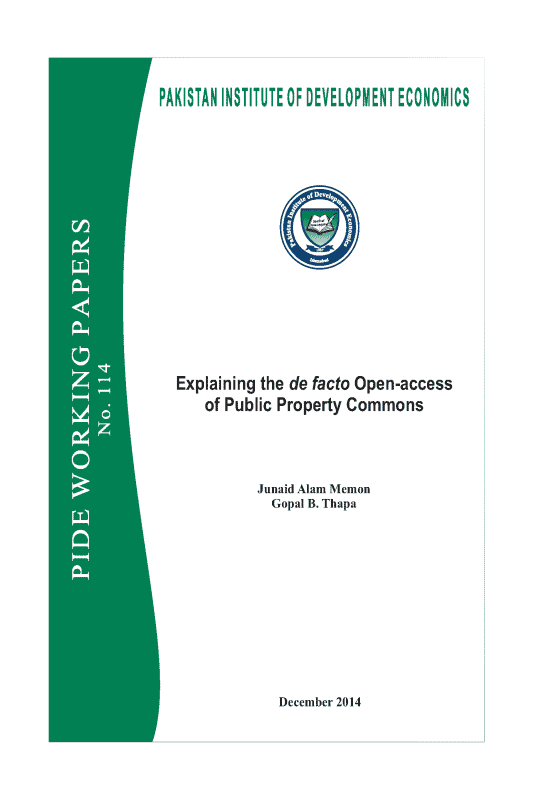
Pakistan Institute of Development Economics
- Home
Our Portals
MenuMenuMenuMenuMenuMenuMenu - ResearchMenuMenuMenuMenuMenuMenuMenu
- Discourse
- The PDR
- Our Researchers
- Academics
- Degree Verification
- Thesis Portal
- Our Portals
Explaining the de factoOpen-access of Public Property Commons
Public property common pool resources in many developing countries are often portrayed in dismal states allegedly due to governments inability to manage them in a sustainable manner. While this explanation may have some merit, it is certainly inadequate. Instead, we argue that public property commons degrade partially because governments, in their attempt to obtain an overall societal balance, sometime accord low priority to some resources and bestow their ownership to an apparently unconcerned agency. While this tendency is deliberate, it results for a de jure public property commons to exhibit a de facto open-access status. Based on policy and institutional analyses of mangrove management in Pakistan, we bring such a case for theoretical debate on the issue and favour partial right regimes as a relatively better way of defining rights regimes for complex resources such as forests and wetlands including mangroves.



